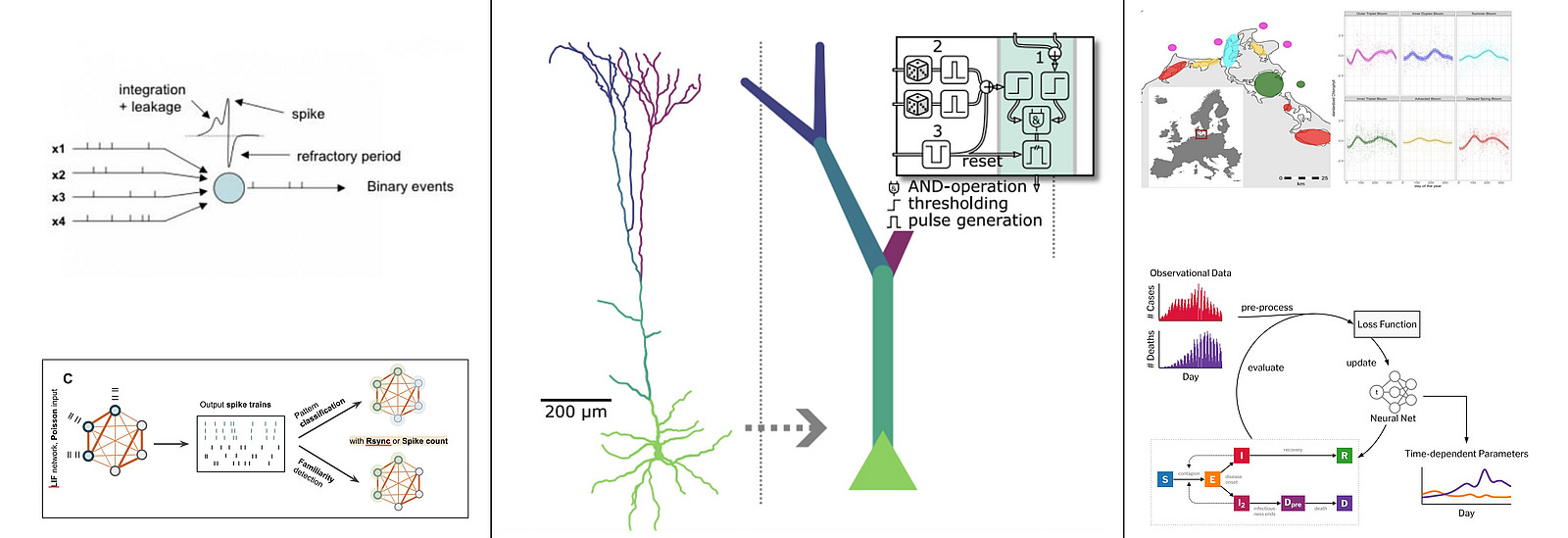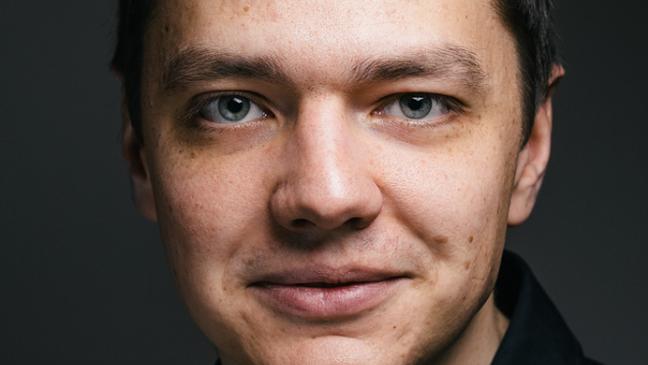Neurocomputation
We seek to understand the computational principles that make the brain a remarkably efficient and sophisticated thinking machine, and apply these insights to advance our understanding of cognition and neural computation. Our research is built on the recognition that we are only beginning to understand the rich computational principles that give biological neural systems their unparalleled abilities, efficiency, and adaptability. We believe new discoveries that elucidate how neural circuits process information will significantly advance our neuroscientific understanding of cognition for both basic science and clinical applications while simultaneously inspiring technological innovations in artificial neural networks and neuromorphic hardware. Therefore, we develop mathematical and computational theories that build upon state-of-the-art discoveries in experimental neuroscience and neurobiology. Our work addresses the centrality of active dendrites in computation and learning, the significance of temporal coordination and spike synchrony in neural coding, and the interaction of network-level coordination with completely local plasticity rules. We also develop specialized machine learning tools and technologies for dynamical systems that connect our theoretical research to empirical data. Recent work from our lab includes: the discovery of timing-invariant sequence processing based on dendritic plateau potentials, demonstrations of spike synchrony’s role in computation, and the development of novel trajectory-based methods to train machine learning models embedded in dynamical systems. We apply our theoretical results through collaborations on neuromorphic hardware design for efficient AI accelerators that benefit energy-constrained applications and lower the AI CO2 footprint, and by developing new AI algorithms that connect to neuromorphic sensors such as event-based cameras. Additionally, our machine learning tools support research in other domains, helping environmental scientists study ecological dynamics of phytoplankton in the Baltic Sea.

